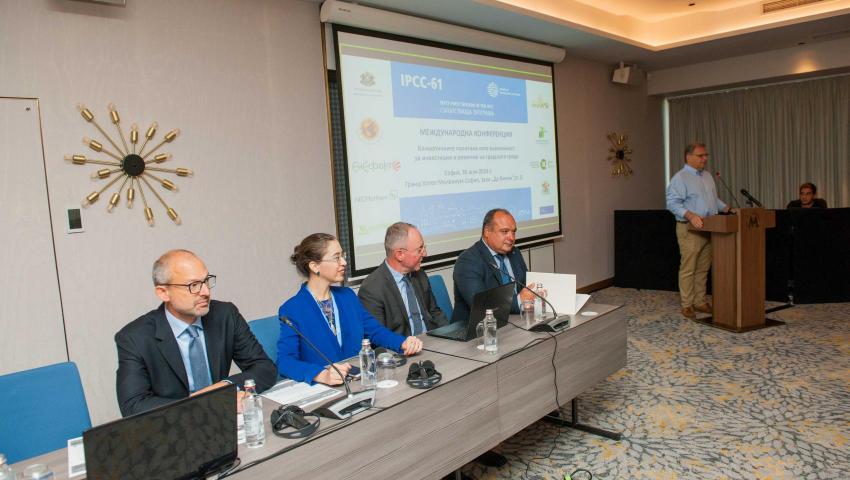Local government is key in implementing climate change policies
Climate policies as an opportunity for the development of cities were discussed at a conference within the Bulgarian host of the IPCC

"Climate change requires not only global and national measures, but also local measures. Local government is closest to the people and therefore knows how to implement climate change and mitigation policies along with adaptation to the changes that have already occurred." This was said by the Minister of Environment and Water, Petar Dimitrov, at the opening of the international conference "Climate policies as an opportunity for investments in the development of the urban environment".
The forum brought together politicians, mayors, scientists, experts and public figures and is part of the accompanying program to the 61st session of the Intergovernmental Panel on Climate Change (IPCC), which is being held in Sofia. Bulgaria and the Ministry of Environment and Water jointly host the session, which takes place between July 27 and August 2. The conference is organized by the Ministry of Education, Culture and Science together with the Ministry of Energy, NSORB, the Climate Coalition and the Center for Energy Efficiency "EnEfect".
Minister Dimitrov recalled that cities focus the lives of people, business, industry and infrastructure, therefore there is also the place to solve climate challenges. "I see more and more settlements with measures against hot spots - if in the past large squares were built, now the adaptation requires a green approach," the minister emphasized. That is why he insisted on good cooperation between the institutions and the local government, noting with satisfaction that society and business are already actively participating in the process of ensuring a healthier life and a cleaner environment.
At the opening of the conference, Deputy Minister of Energy Krasimir Nenov added that urban communities are the main driver of changes towards a sustainable ecological future and a circular economy. And he recalled that Sofia and Gabrovo are among the 100 European climate-neutral cities - an EU campaign with a horizon until 2030. Before the representatives of the municipalities, Deputy Minister Nenov emphasized that the Ministry of Energy promotes green initiatives.
Introductory presentations on the panel "Cities as a key partner in climate policy development and implementation" were made by Shiir Kilkish, Vice-President of the IPCC Working Group on Limiting Climate Change, and Dr Philip Tulkens, Head of Unit in the Healthy Planet Directorate, Directorate-General for Research and Innovation of the European Commission and Deputy Head of the EU's Adaptation to Climate Change Mission.
The importance of reducing emissions in the urban environment was emphasized by Prof. Shiir Kilkish and specified that this was one of the topics of discussion during the IPCC session. Using materials that require lower energy consumption as a measure for sustainable production and changing the design, positioning and construction of the housing stock in the direction of energy efficiency are just some of the exemplary policies noted by Prof. Kilkisch. "Forums like today's aim to help governments and local authorities find solutions to mitigate the effects of climate change and the 'cooling' of cities," added Shiir Kilkish.
In turn, Dr. Philip Tulkens urged the representatives of the scientific community to publish their research and submit their candidacies as authors to the IPCC, because the next scientific report is about to be prepared. “Local authorities have a very important role to play in climate change adaptation efforts – the aim is to take transformative initiatives and actions so that solutions are tailored to their local needs. Look for funding from the European Cohesion Policy, the EBRD and other opportunities to secure financial means," Dr. Tulkens urged the mayors.
The focus of the event was on the role of local authorities in implementing modern solutions for energy efficiency, renewable energy sources and adaptation to climate change. During the forum, results of innovative projects and funding opportunities for local sustainable energy initiatives were presented.
Participants in the discussions asked questions and indicated examples of how the EU's missions for 100 climate-neutral and smart cities and adaptation to climate change stimulate the interaction between central and local authorities to develop working investment models and improve infrastructure in municipalities.
You can find everything about Bulgaria's hosting of the IPCC plenary session on the website of the MoEW.
